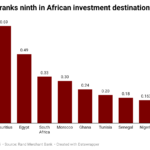South Africa is set to implement a new National Health Bill. The bill is tagged ‘National Insurance Bill”. It seeks to overhaul South Africa’s entire health sector by limiting the role of private insurance companies.
The new South Africa health bill will be implemented despite strong opposition against it. President Cyril Ramaphosa had signed the bill shortly before the general elections in May. The ruling ANC had failed to win a majority in that election, its worst since 1994. This led to the formation of a coalition government with some opposition parties.
This new bill could affect the coalition formed by the ANC. This is because the main opponents of the bill are in the DA, the main party in the coalition government. In fact, the DA leader, John Steenhuisen has said the survival of the coalition depends on whether Ramaphosa would withdraw the bill.
With this new bill, South Africa will be creating a new public fund to provide free health insurance coverage for citizens. It also seeks to break the monopoly of private health insurance companies by setting the fees they can charge for their services.
- Advertisement -
The opposition to this bill stems from concern about the over bearing role of government and how this could affect the business environment in South Africa. This is also raising concerns for the private insurance companies whose role would be limited by the implementation of the bill. The opponents of the bill also believe the funding model is not sustainable.
Supporters of the bill see it as a major change in the country’s health sector. They say it would improve access to healthcare and break the inequality which goes back to the apartheid era.
The South African government has promised to listen to concerns about the bill. It has also promised to implement it in phases over the next few years.
The new bill could help address issues of healthcare coverage in South Africa. However, critics say it could hurt private businesses in the country.










